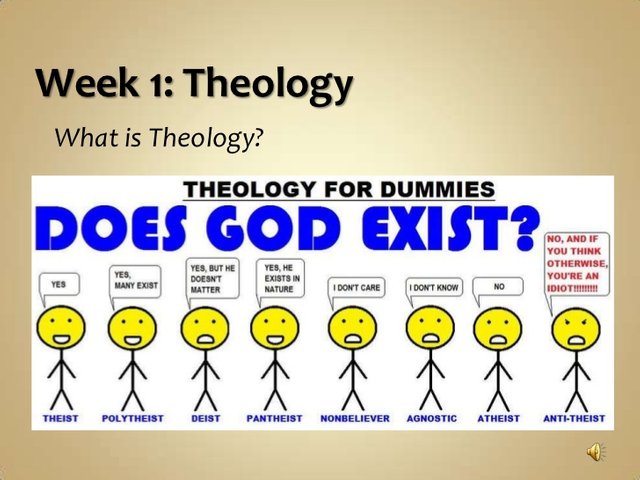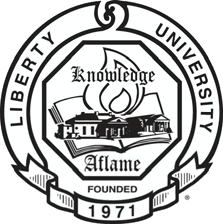What is Theology?

When I graduated seminary with a master’s degree in theological studies I asked myself the question, “What is theology?”

Certainly, a grad student should be able to answer a simple question about their field of study. However, I came to realize that I was not able to answer this question; not even in the most basic form.

Puzzled by the fact that I could not define the study; I did some studying… actually I just did some googling.
I found many articles where many theologians had the same problems as I did.
But let me be clear, I am not talking about being able to define “theology” as a word or as a practice. Everyone knows that “theology is the study of God.”
My question goes much further beyond this basic understanding and it seeks to answer questions like “Why do we have theology?” ”Is there a need for theology?” “Does theology go beyond the normal understanding?”
On August 22, 2005, Michael Patton published a short article on Bible.org (An Evangelical Bible website).

Michael Patton is the director and teacher of The Theology Program (TTP). He holds a Th.M. from Dallas Theological Seminary and an ordination from Stonebriar Community Church. TTP Instructors are Michael Patton, Th.M. and Rhome Dyck, Th.M. The Theology Program is copyrighted and published by Reclaiming the Mind Ministries, Frisco, TX
If you pay close attention to the words Patton used in his article (in quotes below) you can clearly see that he points to the same problem I addressed when I finished my degree.
Theology is not just about “studying God.”
It is much more than that.
It goes way beyond human understanding, which is why so many great minds have been captivated by the study.
Read Patton’s article and you will see what I am talking about.
Comment after reading to express your thoughts.
I would like to have a nice theological conversation about “The study of God.”

Patton wrote,
What is theology? Theology seems to be a bad word today. To many it communicates bigotry, arrogance, and exclusivism riddled with impracticality. Sure, people will allow you to have your theology, just don’t let it be know [sic] with too much conviction that you actually believe it. You can have your beliefs just don’t push those upon others.
Webster’s dictionary defines theology as “The science of God or of religion; the science which treats of the existence, character, and attributes of God, his laws and government, the doctrines we are to believe, and the duties we are to practice. . . the science of Christian faith and life.” Saint Augustine in the fifth-century defined theology as “Rational discussion respecting the deity.” A. H. Strong, the great twentieth century theologian said that theology is “the Science of God and of the relations between God and the universe.” Charles Ryrie, the popular dispensationalist theologian, says theology is “thinking about God and expressing those thoughts in some way.” (Basic Theology [Wheaton, IL: 1986], 9). Millard Erickson, a modern Baptist theologian says that theology is simply “the study or science of God.” (Christian Theology [Grand Rapids, MI: Baker, 2001], 22).
Most simply put, theology is the study of God. It comes from the word theos which is Greek for “God,” and -ology which is from the Greek word logos meaning “word.” Most literally then the word theology means “words about God” or “the study of God.” If one were to use the term generically, it functions much like “philosophy” or “worldview.” People often use the word this way in secular venues. Many times it is used very specifically, speaking only about God. This is called “theology proper.” But generally speaking theology is a belief system that is built upon intellectually and emotionally held commitments concerning God and man.
Speaking about theology in times past was not thought of taboo as it is today. It used to be called “the queen of the sciences.” It was understood to be the first among pursuits of knowledge, since it was believed that all other pursuits were vitally linked to its dictates. Morality was dictated by it. Philosophy was called its handmaiden. Why was it held in such high esteem then? Because theology itself provides a foundation for your philosophy and worldview, which in turn sets inclinations for your heart, actions, and decisions in all situations. Everything is affected by your theology. For example, if your theology denies the existence of God, then your morality is going to be affected since its basis is not a personal and timeless being. With a theology of atheism (i.e. belief that there is no God) morals become relative to the time and situation. In this case, what is true for one generation may not be true for another. If your theology denies the sinfulness of man, then a bloody sacrificial death to atone for sin becomes repulsive, since, according to your theology, men don’t need to have their sin atoned for. If your theology is polytheistic (i.e. belief in many gods), then you will constantly be trying to figure out which god or gods you should encounter, pray to, and/or appease in order to make their situation “right.” The implications are endless.
In short, theology is a set of intellectual and emotional commitments, justified or not, about God and man which dictate ones beliefs and actions. Neither the word itself is irrelevant, nor the concepts which it seeks to articulate. It is the first pursuit of knowledge and wisdom. (https://bible.org/article/what-theology)

Bio
Adam Jorden Clark is a prolific blogger, writer, theologian, and historian. His study focus is the New Testament, in which he discusses the theology and history of the text.
His updated writing skills and his modern approach to readers makes the New Testament come alive as his writing is filled with fun and exciting facts.
Education
- A.A., Psychology, 2013;
- B.A., Religion, 2015;
- M.A., Theological Studies, Liberty University, 2016;
Experience
Adam Jorden Clark has written six books including Am I Christian? —a top of the line book that explains how to the live the Christian life from a practical perspective —And What is Righteousness? which explains how God has required Christians to live a righteous life.
Adam Jorden Clark’s blog covers many different topics. But much of his writing is centered on theology, church history, the New Testament, the Bible, and the Gospel. You can read his weekly blog postings by subscribing to his blog.
Other Activities
Besides his weekly blog postings and book writing, Adam Jorden Clark spends his time outdoors as an avid cyclist. He is interested in long-distance cycling and posts updates of his cycling on his Instagram account @adamjordenclark. His dream of long-distance cycling is to compete as a single rider in the Race Across America (RAAM) —A 3,000-mile bicycle race from San Diego, CA to Atlantic City, NJ, which must be completed in 12 days or less.
If you find my story appealing or think I may have something worth reading in the future, then follow my Steemit account
Website:
And you can subscribe to my blog: www.adamjordenclark.com/subscribe
Adam Jorden Clark is a prolific blogger, writer, theologian, and historian. His study focus is the New Testament, in which he discusses the theology and history of the text.
His updated writing skills and his modern approach to readers makes the New Testament come alive as his writing is filled with fun and exciting facts.
Education
- A.A., Psychology, 2013;
- B.A., Religion, 2015;
- M.A., Theological Studies, Liberty University, 2016;
Experience
Adam Jorden Clark has written six books including Am I Christian? —a top of the line book that explains how to the live the Christian life from a practical perspective —And What is Righteousness? which explains how God has required Christians to live a righteous life.
Adam Jorden Clark’s blog covers many different topics. But much of his writing is centered on theology, church history, the New Testament, the Bible, and the Gospel. You can read his weekly blog postings by subscribing to his blog.
Other Activities
Besides his weekly blog postings and book writing, Adam Jorden Clark spends his time outdoors as an avid cyclist. He is interested in long-distance cycling and posts updates of his cycling on his Instagram account @adamjordenclark. His dream of long-distance cycling is to compete as a single rider in the Race Across America (RAAM) —A 3,000-mile bicycle race from San Diego, CA to Atlantic City, NJ, which must be completed in 12 days or less.
If you find my story appealing or think I may have something worth reading in the future, then follow my Steemit account
Website:
And you can subscribe to my blog: www.adamjordenclark.com/subscribe
Adam Jorden Clark has written six books including Am I Christian? —a top of the line book that explains how to the live the Christian life from a practical perspective —And What is Righteousness? which explains how God has required Christians to live a righteous life.
Adam Jorden Clark’s blog covers many different topics. But much of his writing is centered on theology, church history, the New Testament, the Bible, and the Gospel. You can read his weekly blog postings by subscribing to his blog.
Other Activities
Besides his weekly blog postings and book writing, Adam Jorden Clark spends his time outdoors as an avid cyclist. He is interested in long-distance cycling and posts updates of his cycling on his Instagram account @adamjordenclark. His dream of long-distance cycling is to compete as a single rider in the Race Across America (RAAM) —A 3,000-mile bicycle race from San Diego, CA to Atlantic City, NJ, which must be completed in 12 days or less.
If you find my story appealing or think I may have something worth reading in the future, then follow my Steemit account
Website:
And you can subscribe to my blog: www.adamjordenclark.com/subscribe
And you can subscribe to my blog: www.adamjordenclark.com/subscribe
Hi! I am a robot. I just upvoted you! I found similar content that readers might be interested in:
https://bible.org/article/what-theology